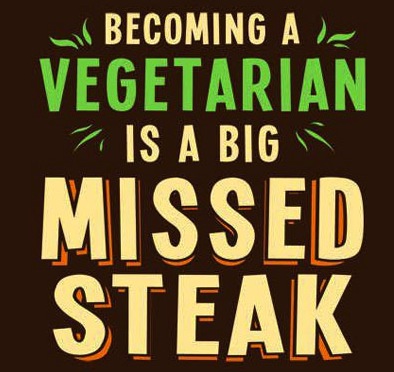Guardian’s Larry Elliott gets numbers wrong on meat eaters
 YES, yes, of course we should all go off an become vegetarians. Far too many people about eating too much meat and the only way we can feed us all is with mung beans. And lentils.
YES, yes, of course we should all go off an become vegetarians. Far too many people about eating too much meat and the only way we can feed us all is with mung beans. And lentils.
This may or may not be true but what pisses me off is the numbers used to justify this. Larry Elliott in The Guardian this morning for example:
Meat consumption is rising in China, India and Brazil, and since it takes 7kg of grain to produce 1kg of beef (and 4kg to produce 1kg of pork), this is adding to global demand.
Err, no, sorry, but that is not true. The correct answer is that using a certain technology it takes 7 kg of grain to produce 1 kg of beef: using others it requires none at all. The clue can be found here:
The efficiency with which various animals convert grain into protein varies widely. With cattle in feedlots, it takes roughly 7 kilograms of grain to produce a 1-kilogram gain in live weight. For pork, the figure is close to 4 kilograms of grain per kilogram of weight gain, for poultry it is just over 2, and for herbivorous species of farmed fish (such as carp, tilapia, and catfish), it is less than 2.
That is US style feedlot operations that require that much grain. If you’re not on a feedlot, if you’re for examplefeeding your cattle on grass and silage like we do mostly in the UK then you require absolutely no grain at all to grow beef.
It simply isn’t true that eating a kilo less of beef a year saves 7 kg of grain for others to eat. It depends upon how and where the beef was raised and what it was fed upon.
Perhaps we do all need to become vegetarian, perhaps we don’t. But I do wish that people, including journalists, would understand the numbers they’re using: possibly, even, use the correct ones.
Posted: 3rd, September 2012 | In: Money, The Consumer 4 Comments | TrackBack | Permalink


